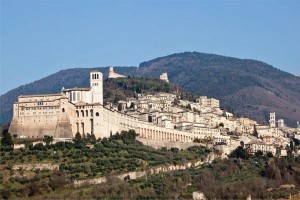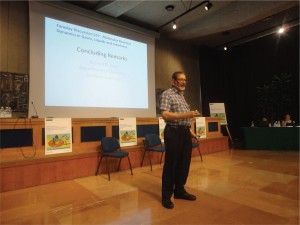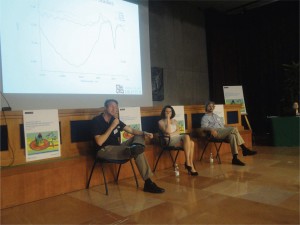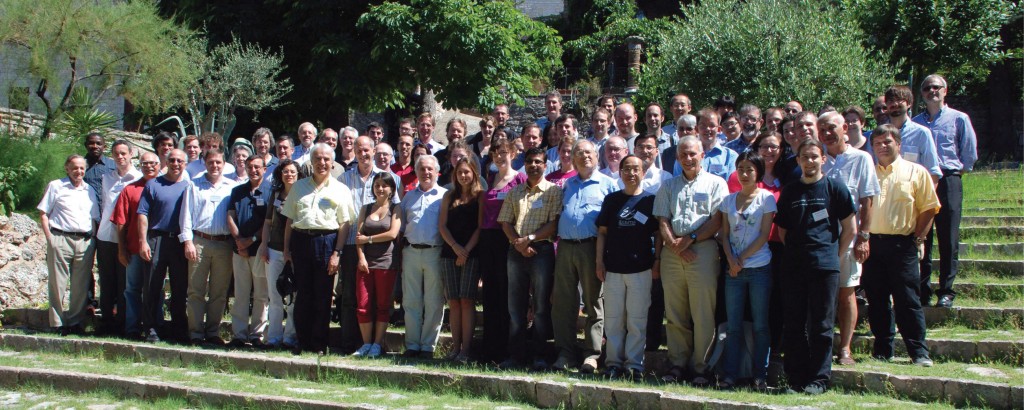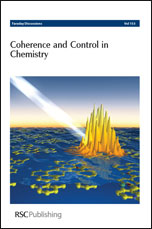Highlights written by Piergiorgio Casavecchia (University of Perugia, Italy), Chair of the Scientific Committee.
Faraday Discussion 157: Molecular Reaction Dynamics in Gases, Liquids and Interfaces took place from the 25th-27th June 2012 in Assisi (Italy), a beautiful and historic location.
As acclaimed by Richard Zare from Stanford University in his concluding remarks,
“The 157th Faraday Discussion represented a historic turning point in the development of the field of reaction dynamics because it concerned itself with how reactions occur in gases, in liquid, and at interfaces. Never before has the attempt been made to unify the various approaches to reaction dynamics in one Faraday Discussion meeting and to discover what language was common and what was special to these previously distinct subdisciplines. This Discussion also marked a maturation of the field of reaction dynamics in that so much emphasis was placed on what the combination of theory and experiment could tell us about the detailed course of chemical transformations.”
Fleming Crim from the University of Wisconsin, Madison, set the tone for the meeting with his superb introductory lecture on chemical transformations across phases. This theme continued in the many presentations and discussions to be found in Faraday Discussion 157. Session 1, focusing on Bimolecular Reaction Dynamics in the Gas Phase and chaired by Piergiorgio Casavecchia, got everything off to a full speed start with a mix of outstanding experimental and theoretical works and everyone quickly got into the swing of the unique way in which Faraday Discussions work! The power of the question in defining new directions for a field became immediately apparent. At the end of the afternoon, before dinner we had a drinks reception in the terrace of La Cittadella to accompany an excellent poster session – outside in the sunshine!
Snapshots at the poster session (by Stephanie Seymour):
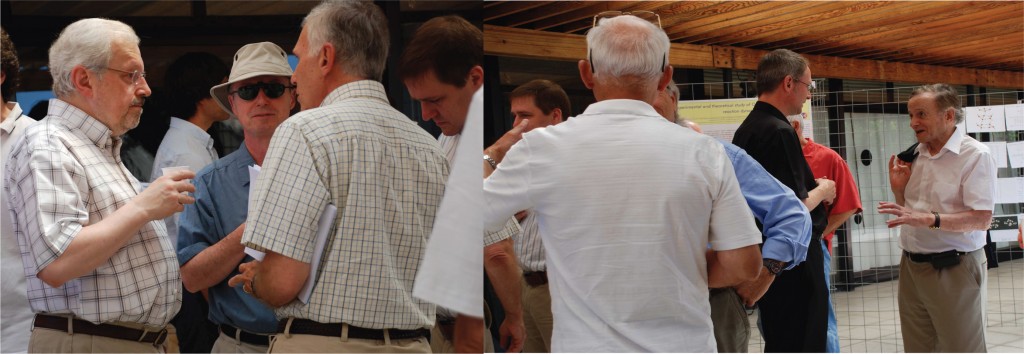
(Left) Don Truhlar, David Nesbitt, Joel Bowman and Stuart Mackenzie. (Right) Thorsten Bernhardt and John Polanyi.
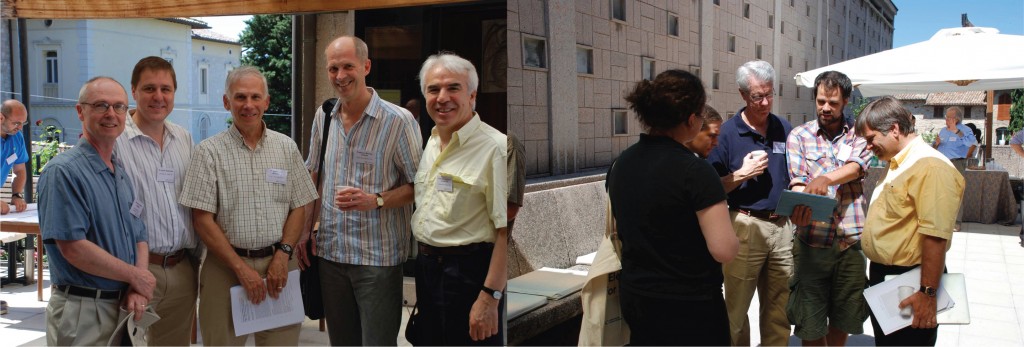
(Left) David Nesbitt, Stuart Mackenzie, Joel Bowman, Mike Ashfold and Pierogiorgio Casavecchia. (Right) Fleming Crim, David Glowacki and Todd Martinez.
The discussion at the poster session as well as those throughout the meeting were always very stimulating with a lively and friendly atmosphere and plenty of time to mix with colleagues. World leading scientists in various fields contributed. Lots of young people were present – graduate students and postdocs.
Tuesday was an early start for Session 2 on Photodissociation Dynamics in the Gas and Liquid-Phase chaired by Andrew Orr-Ewing and included a stimulating discussion highlighting how the gap between the two phases is being bridged.
In the afternoon Session 3 focused on Reaction Dynamics at Interfaces, chaired by Alec Wodtke. We are so appreciative that Nobel Laureate John Polanyi, one of the icons in the field of reaction dynamics for his early ground-breaking experiments using infrared spectroscopy, could join us for this Discussion and share with us his new work on surface-controlled reactions. Also in this session “question time” continued to be very lively and stimulating.

Nobel laureate John Polanyi and Rainer Beck, David Nesbitt and Steve Sibener at "question time" (photos by S. Falcinelli).
The conference dinner was held at La Cittadella and was preceded by an aperitif in the gardens outside the restaurant. The “Umbrian style” food was excellent and after dinner the Faraday Loving Cup was circulated around the entire room. Mike Ashfold the current President of the Faraday Division was sporting the spectacular badge of office and gave a tremendous speech! It was great to mark the last Faraday Discussion Mike Ashfold attended in his role as President of the Faraday Division with a discussion meeting so closely aligned with his research interests. The Skinner Poster Prize was awarded ex-aequo to Stephanie Harris, from the University of Bristol, for her poster on “X-H/X-Me Photodissociation dynamics of aromatic molecules: Linking gas phase processes with the solution phase”, and Lee C. Ch’ng, from the University of Southern California, for her poster on “Imaging energy transfer and hydrogen-bond breaking in the water dimer”.
Wednesday morning Session 4 on Ultrafast Reaction Dynamics, chaired by Stephen Bradforth, expanded reaction dynamics to fast-folding proteins and a busy and stimulating discussion closed the official meeting sessions. Richard Zare then, in his concluding remarks, rather than providing “a Readers Digest account” of what transpired from this exciting meeting, chose to offer some of his own perspectives on this field, by looking at its past, present and future. He emphasized the power of the question in defining new directions for a field. He remarked how at this Discussion speakers were kept on their toes by many probing questions, especially from Joel Bowman, David Glowacki, David Nesbitt, Daniel Neumark, and Donald Truhlar, among many others, who made sure that the discussion throughout the meeting was challenging and very stimulating. He concluded owing a great debt of gratitude to the organizers, Piergiorgio Casavecchia (Chair), David Clary, Peter Hamm, Andrew Orr-Ewing, George Schatz, and Alec Wodtke, who put together a most memorable conference.
Keep an eye out for the published volume of this Faraday Discussion, which will be going online later this year – or sign-up to our free contents e-alerts to have Faraday Discussion 157 delivered straight to your inbox!
We welcome your ideas, contact Faraday Discussions with your topic proposal for a future Discussion.


